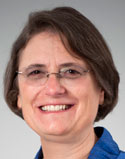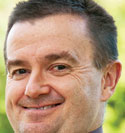There are countless good schools that prepare all manner of public servants. We have great doctors and lawyers, business leaders and scientists—thanks be to God.
But as Craig Dykstra of Lilly Endowment reminds us, leadership of the church requires a complexity and integrity of intelligence that is unusual. One has to be smart in lots of really interesting ways, he says. That smartness involves substantive knowledge and practical know-how, along with the remarkable ability to move into contexts that are full of joy, misery and conflict, and name what is really going on—through the eyes of faith. There is no other work like it, according to him.
• A confession: As an educator and seminary president, I presumably know a few things about how leaders are formed. But I must confess that I am confounded by the mystery. When I see a leader guide worship that awakens body, mind and spirit, I am in awe. When I watch a pastor initiate ministry that attends to the well-being of an entire neighbourhood, I give thanks. When leaders of a congregation empower everyone’s gifts for the good of all, my spirit dances with joy.
There is no foolproof formula for educating leaders of any organization, and certainly not for the church. Biblical stories of God’s call often surprise us by the way unspectacular people become spokespersons for God’s reconciling mission—some of them highly educated, others not so much.
What I do know, however, is that many ordinary people who said, “Here am I,” and gave themselves to study, prayer and practise in one of our Mennonite seminaries, have become spiritually mature, respected leaders in congregations, businesses, universities and social service organizations. During my travels in the last two years, many alumni have told me about the transformative impact their seminary education had on the quality of their leadership.
• A sober acknowledgement: There’s a lot of talk these days about “the future of the seminary”—from The Chronicle of Higher Education to Canadian Mennonite, from the Association of Theological Schools (with its 260 accredited institutions), to the “Sam-Hedrin” (20-plus retired Mennonite professionals with whom I recently spoke). Lots of concerned people are cogitating about how theological education needs to change in order to better serve the church.
I have participated in countless conversations about the cultural, pedagogical, financial, demographic and spiritual dynamics in flux as we form leaders for a rapidly changing world. There are calls to move more learning from the classroom to “the streets” with extended apprenticeships. Financial strains faced by many seminaries have led to a search for fiscally sustainable models. Educational pedagogy is expanding to make learning accessible to people from a distance. Faculty are shifting their specialized focus to create interdisciplinary learning experiences.
But more needs to change. The future church may not look much like the established congregations of today, with our lined-up pews and scripted-bulletin worship. The evidence is everywhere that people are hungry for spirituality and for genuine relationships, but they are not coming to church like they used to. The church has become a modern, secularized institution, say authors Eddie Gibbs and Ryan Bolger. Many spiritually minded people are going elsewhere to feed their hunger.
What if the primary purpose of an Anabaptist biblical seminary was to educate Christian leaders to form and guide communities of shalom? And what if we recognized in our fragmenting, individualistic world, how singularly important it is to form leaders within community? What if a seminary was an intentional community, a community solely devoted to understand the Bible, to speak fluently about faith, to discern the Spirit at work in culture, and to grow into spiritually mature disciples of Jesus Christ?
One doesn’t acquire the qualities needed to serve as trustworthy, Christ-centred leaders without being deeply formed by the biblical story. Nor will one be ready to serve the reconciling mission of God without theological fluency as ambassadors of Christ’s peace. Within a culture polarized around divisive issues, one won’t confidently lead community discernment without practice. Nor can people serve as worthy spiritual guides without themselves growing in spiritual maturity.
More than ever, we need seminaries for reimagining Bible study, theological fluency, cultural discernment and spiritual maturity.
• Reading the Bible: More and more of us want to engage the Bible on its own terms, not through some preconceived theory imposed on the Bible. We want to read the Bible as the astonishing drama it is—a multi-splendoured drama of the Word who was there at the beginning with God, and yet became one of us—full of grace and truth.
Canadian Mennonite educational leader Gerald Gerbrandt told a recent gathering of Mennonites that we have had inadequate imagination for what Scripture is and how it can be authoritative. Scripture is an ancient narrative book. We need to treat it in a manner consistent with its true nature, he said. Scripture offers us a great authoritative and divinely inspired drama that is as yet unfinished. We need to go back to Scripture to better understand our role in the drama.
An Anabaptist biblical seminary that’s worth its salt will teach Spirit-attuned readers to translate, preach, pray, sing and dramatize the biblical narratives. Why? Because of their enduring ability to reveal God to us wherever we are.
• Theological fluency: Whether because of laziness, fear or immaturity, many of us are unable to think, write or talk persuasively about what we believe. This was hardly a shortcoming of the Anabaptists!
Theology should not be an esoteric discipline reserved for the experts. Theology is what any faith-filled person does—more or less well—to make sense of how God is active amid the dilemmas, tragedies and joys of everyday life.
An Anabaptist seminary will make fluency in the language of faith a priority. We draw from deep wells of ancient wisdom to enrich conversations about who God is, who we are and how we are called to live. To become confident, respectful witnesses, we practise theological conversation in cross-cultural, interracial and inter-religious contexts.
• Discerning culture: Gone are the days when we could hide in ethnically separate, homogeneous enclaves of assumed purity. Gone are easy divisions into tidy categories of sacred and secular. But front and centre is the need for us to discern the spirits, to become detectors of where the Spirit of God is moving.
Our communities are increasingly diverse, making life richer and making it more challenging to find the kind of unity that Christ so longed for his disciples to cultivate. Jesus prayed for his disciples, just before he was arrested: “May [they] become completely one, so that the world may know that you have sent me” (John 17:23).
Associated Mennonite Biblical Seminary New Testament professor Mary Schertz writes that the Mennonite tendency to divide over disagreements, rather than learn to be a discerning and yet unified community, has not been one of our strengths. Taking the cross of Jesus seriously means that suffering love is to be played out in the arena of discernment around difficult issues, as in all other areas of our common life. There can be no holier work, she says, no more compassionate work, than to understand each other and God better by engaging in the difficult conversations that we currently find ourselves in the midst of.
The splits our community has often experienced are a tragic fracturing of Christ’s body. It is no wonder that many people’s immediate association with religion—Christian and otherwise—is of conflict. An Anabaptist seminary has an important responsibility to educate leaders who can guide discernment processes around difficult issues, so that everyone will know by our costly love whose disciples we are.
• Spiritual maturity: Almost nothing is more painful and disillusioning than when a trusted leader is found to be abusive, deceptive or more into self-promotion than the glory of God.
An Anabaptist seminary provides opportunities in an overwhelmingly self-indulgent culture to grow in spiritual maturity. We invite each other to grow as disciples of Christ, willing to be accountable with our longings, failures and joys in spiritual friendships.
We invite each other to affirm lifestyles that steward the goodness of creation and are financially disciplined. We invite each other to affirm vocations of singleness and uphold public covenants of marriage. We are committed to fostering sexual shalom, as theology professor Gayle Gerber Koontz calls it, holding together the unity of the church and holiness of life.
As spiritually mature people of faith, we invite each other to covenant together to incarnate the saving reign of God. We covenant together to become, by the grace of God, the visible body of Christ, led by the Spirit.
• Conclusion: The qualities I name above—biblical understanding, theological fluency, cultural discernment and spiritual maturity—seem to be weakening in many of our faith communities. Thus my assertion with full-hearted conviction that more than ever we need seminaries re-imagined. The mission of an Anabaptist biblical seminary to educate Christian leaders to form and guide communities of shalom has become ever-more critically important.
Sara Wenger Shenk is president of Anabaptist Mennonite Biblical Seminary, Elkhart, Ind.








Leave a Reply
You must be logged in to post a comment.